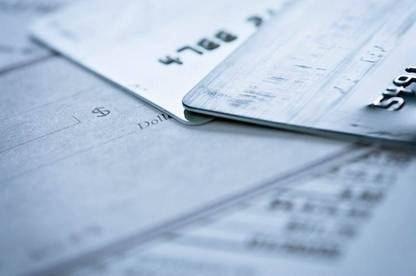
Cheques
Cheques live on – but for how long?
84 percent of members in our 2012 banking survey still used a cheque book. Of those, 93 percent had written a cheque in the previous 12 months and almost a third had written more than 10 in that time.
So cheques remain an acceptable means of payment for Kiwis – even for those who use online banking. What is the future of cheques, and how do you protect yourself when using them?
Declining use
According to a recent report by the Reserve Bank, 2 percent of non-cash payment transactions through the New Zealand banking system in 2010 were by cheque compared with over 50 percent in 1993. Why the decline?

New Zealanders make payments worth more than $35 billion each day – that's a lot of money changing hands. How do we make those payments? Mostly by eftpos card, which accounted for 55 percent of non-cash payments in 2010. Add in credit-card transactions and that percentage leaps to 70 percent. For regular payments we can set up electronic credits (automatic payments and direct credits) and direct debits. Over 500 million transactions were made in this way in 2010, 25 percent of total non-cash payments.
Internet banking has become a significant tool to help us make these payments. Reserve bank figures show individual transactions over the internet amounted to 143 million by 2009, 3 times what it had been 5 years earlier. Mobile phones can also be used for internet banking. And it doesn't stop there – in the future payments are increasingly likely to be made by holding a smartphone up to a computer or touchpad (rather like a Snapper card or Mastercard PayPass).
Other countries
Cheque use is declining worldwide. Cheques barely exist in the Netherlands and Sweden; and they were about to be phased out in the UK until strong public opposition cancelled the decision.
10 years ago the US relied heavily on cheques. Since then the trend has been downwards with cheques now accounting for only about 20 percent of non-cash payments. Following a Federal Reserve payments study in 2010, the US has decided that from early 2013 federal benefits and non-tax payments will no longer be paid by cheque.
Over the past decade cheque use in Australia has dropped by more than 60 percent, although cheques will be offered for as long as there is demand. The Australian Payments Clearing Association has also announced a plan to help people find alternatives to cheques.
The future
John Albertson, Chief Executive of the New Zealand Retailers Association, says retailers are now less likely to accept cheques from strangers – mainly because of payment security but also because of the time it takes to clear cheques and receive the funds. However, they may accept cheques from regular customers as a "customer service".
Payments NZ (PNZ), which was set up in 2010 to manage our payments system, has commissioned a review of cheques. This will collect industry, public and interest-group views on the place of cheques in New Zealand and then use this information to make sure that some people won’t be left stranded as the use of cheques winds down.
Results from research carried out in other parts of the world indicate that some groups are likely to be affected if cheques become less common – especially elderly people, those living in rural areas, charities, some small businesses, and government departments.
Our view
We think it's important that people who need to use cheques can continue to do so. The review by PNZ is a step in making sure the road to a cheque-less economy isn’t a chequered one.
Report by Annette Barnes.
Fraud protection
- Cross the cheque by drawing 2 parallel lines vertically through the middle of the cheque. Write the words "not transferable" between the lines.
- Write the name or company as clearly as possible.
- Leave no gaps before or after words or figures. Use lines to fill gaps if you have to.
- You can also use "non transferable", "account payee" or "a/c payee." This means the cheque must be paid into the bank account of the party named on the cheque. A cheque marked "not negotiable" can still be transferred to another bank account (unless it has "or bearer" crossed out).
- If you have to change something on your cheque, sign next to the alteration with your full signature.
- Keep your cheque book in safe place – not your car's glove box.
- Reconcile your cheque book – make sure cheques match up with your bank statement.
- Notify the bank immediately if your cheque book is lost or stolen.
- Never pre-sign cheques.
Other scams
Be on your guard for cheques that may not be legitimate.
Good-quality printers and scanners have allowed some fraudsters to print their own realistic-looking cheques. Some have even been made to resemble bank cheques and used to purchase high-value items such as cars. So if you're in any doubt, refuse to accept the cheque.
Member comments
Get access to comment